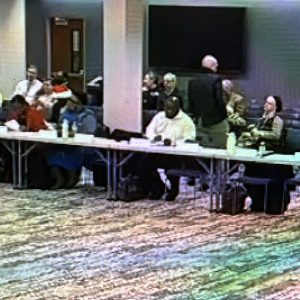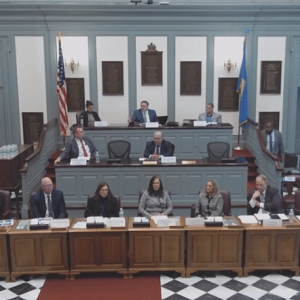
A bill dealing with discrimination and housing will become law. (Photo by Andrey Sayfutdinov/iStocky Getty Images)
Most of the bills flew through the House on the final day of Delaware’s 2024 legislative session, but one dealing with affordable housing was met with resistance before passing.
Senate Bill 293, sponsored by Senate Majority Whip Elizabeth “Tizzy” Lockman, D-Wilmington, revises both the Delaware Fair Housing Act and Residential Landlord-Tenant Code to repeal the exemption to discrimination based on source of income.
That exemption allows a landlord to discriminate against tenants who participate in government-sponsored rental assistance programs because this exemption contributes to a lack of affordable housing in this state.
A housing needs assessment from the Delaware State Housing Authority in late 2023 showed the state needs more affordable housing including multi-units, duplexes and triplex units.
RELATED: Affordable housing group seeks school tax exemptions
Rep. Mike Smith, R-Pike Creek, wanted to know if a landlord has a listed rental for $4,000, would they have to lower the rent and accept $1,500 from someone on a housing voucher for $1,500.
“No,” said Caitlin Del Collo, chief strategy advisor for the Delaware State Housing Authority. “Landlords are under no obligation to reduce their stated rent in order to meet the amount that a voucher will cover, and this bill will not change that.”
When somebody is issued a voucher, she said, they’re issued a voucher for a specific unit size.
So for example, she said, it could be a two bedroom unit and public housing authorities are allowed to pay up to a certain percentage of the fair market rate for that unit size in a given location.
If Smith’s example of $4,000 was above the fair market rate for that bedroom and size, she said, and the voucher was less than that, then the landlord would not have to take it.
She noted that a landlord’s property rented out to someone on a housing voucher goes through inspections that non-voucher properties do not go through.
“That’s an important distinction,” said Rep. Jeff Spiegelman, R-Clayton. “The landlord could potentially be having to put out more effort, more money for a Section 8 because of the inspection, because of the things that require an inspection, versus somebody who does not come with a voucher.”
He acknowledged the growing number of requirements the General Assembly has been putting on landlords, and said this could have an exact opposite outcome than the bill’s intent.
“If I’m a landlord and I have five units, if I’m being forced to put out more effort and more money when my bottom line is so tight right now, what I’m going to do is sell the units,” he said. “I’m going to get a premium right now on the housing market for selling the units.”
That means there’s fewer rental units, he said.
“Less rental units means less supply, it doesn’t mean less demand, it means less supply,” he said. “With demand as high as it is, this bill, along with the other ones that we have been warning you about for the last several years, will cause housing prices to go up by creating less supply, by keeping the same demand.”
Mike Ramone, R-Pike Creek, told Del Collo that he understands what groups like the housing authority are trying to do, but this issue is a complicated beast and while the state and organizations have tried to come at it from a lot of directions, it seems every solution creates another problem.
“I was talked into renting to Section 8… I think I rented to them for about three years, and they destroyed all the floor insulation because there was a water leak, and they never told me about it, so it was too late,” said Rep. Rich Collins, R-Millsboro. “They put grease down the septic system. It cost me $800 and probably a couple grand today. They punched holes in the wall when they left, they left all their trash and furniture and everything in the front yard, and I had a complaint from the county constable.”
SB 293 will now head to Gov. John Carney’s desk for signature to become law, after first getting sent back and passing the Senate due to an amendment.
RELATED STORIES:

Raised in Doylestown, Pennsylvania, Jarek earned a B.A. in journalism and a B.A. in political science from Temple University in 2021. After running CNN’s Michael Smerconish’s YouTube channel, Jarek became a reporter for the Bucks County Herald before joining Delaware LIVE News.
Jarek can be reached by email at jarek@delawarelive.com or by phone at (215) 450-9982. Follow him on Twitter @jarekrutz and on LinkedIn.
Share this Post












